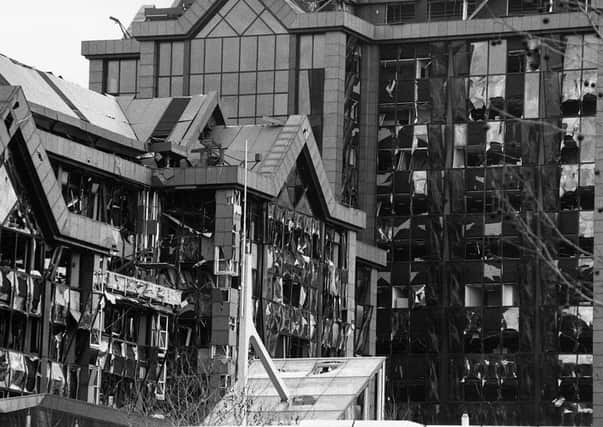‘F**k you to the IRA’: Piers Morgan recalls first hand experience of 1996 Docklands bombing


In an article published in the newspaper he once edited on the anniversary of the attack, Mr Morgan described how the IRA bombing rocked the tower block where he worked and spoke of his and his colleagues determination to continue with their work.
The bombing, on February 9, 1996, killed two people and devastated a wide area, causing an estimated £150 million worth of damage.
Advertisement
Hide AdAdvertisement
Hide AdMr Morgan, who was editor of the Daily Mirror at the time, said: “An enormous bang suddenly went off behind me. I was literally blown off my chair, and my office was 22 floors up the tower.
“It felt quite sickening, a really deep thudding crash that ripped through you like some virtual grenade.”
He continued: “It was horribly close, and the consequences if it had been a bit closer were not lost on any of us.
“Most offices in the tower were emptying at high speed, but we are journalists and this was a huge story.
Advertisement
Hide AdAdvertisement
Hide Ad“I gathered everyone around and said that if anyone wanted to go home, particularly if they have families, then they must leave immediately.
“But I added that I was buggered if the IRA were going to stop us getting the paper out, and all those who wanted to stay and help would be very much appreciated.Some left, many stayed. The mood was sombre but professional after that.”
He said that after the publication of a ten-page special edition he “said a quiet ‘f*ck you’ to the IRA”. He added: “I’ve never been prouder of the Mirror or its journalists than in that moment.”